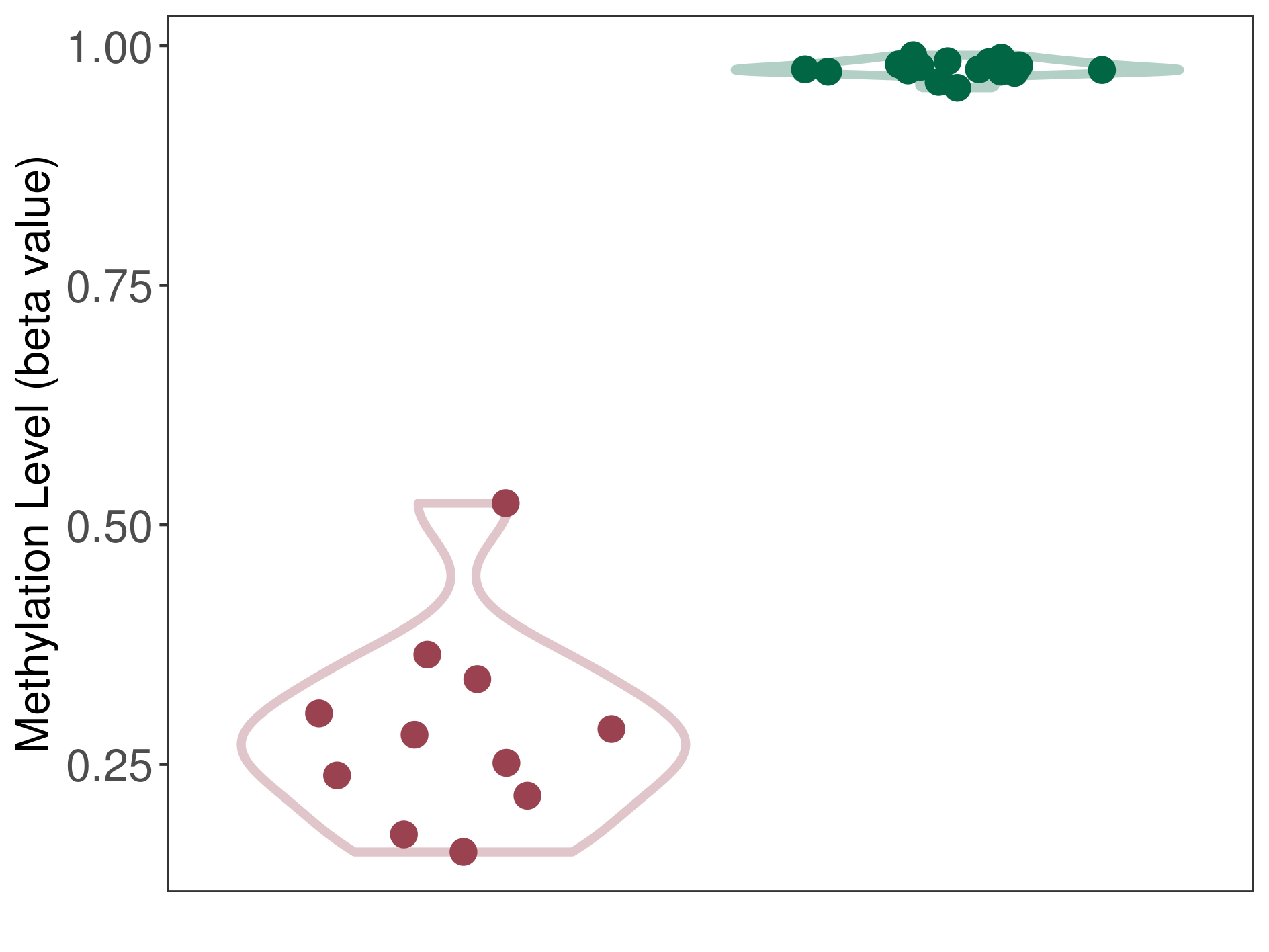Details of Host Protein-DME Interaction (HOSPPI)
| General Information of Drug-Metabolizing Enzyme (DME ID: DME0484) | |||||
|---|---|---|---|---|---|
| DME Name | Sphingosine kinase 1 (SPHK1), Homo sapiens | DME Info | |||
| UniProt ID | |||||
| EC Number | EC: 2.7.1.91 (Click to Show/Hide the Complete EC Tree) | ||||
| Lineage | Species: Homo sapiens (Click to Show/Hide the Complete Species Lineage) | ||||
| Interactome | |||||
| Disease Specific Interactions between Host Protein and DME (HOSPPI) | |||||
|---|---|---|---|---|---|
| ICD Disease Classification 02 Neoplasms | |||||
| ICD-11: 2A00 Brain cancer | Click to Show/Hide the Full List of HOSPPI: 1 HOSPPI | ||||
| DNA methylation | |||||
| DNA methyltransferase (DNMT) | Cerebellar liponeurocytoma | Significant hypomethylation | |||
| Interaction Name | DNMT-SPHK1 interaction | ||||
| The Methylation Level of Disease Section Compare with the Healthy Individual Tissue | Significant hypomethylation p-value: 5.38E-10; delta-beta: -6.94E-01 | ||||
| Description | DNA methyltransferase (DNMT) is reported to significantly hypo-methylate the SPHK1 gene, which leads to a significantly increased expression of the drug-metabolizing enzyme Sphingosine kinase 1. As a result, the interaction between DNMT and SPHK1 can significantly affect the drug-metabolizing process of Sphingosine kinase 1. | ||||
|
DME methylation in the diseased tissue of patients
DME methylation in the normal tissue of healthy individuals
|
|||||
| Violin Diagram of DME Disease-specific Methylation Level |

|
Click to View the Clearer Original Diagram | |||
| ICD-11: 2B90 Colorectal cancer | Click to Show/Hide the Full List of HOSPPI: 1 HOSPPI | ||||
| Non-coding RNA regulation | |||||
| hsa-miR-659-3p | Colorectal cancer | Suppression | |||
| miRBase ID | |||||
| Interaction Name | hsa-miR-659-3p--SPHK1 regulation | [1] | |||
| Studied Cell Lines | LOVO and HT29 cell lines | ||||
| Description | hsa-miR-659-3p is reported to suppress SPHK1 mRNA translation by binding to the 3' untranslated region (3'UTR) of SPHK1 mRNA, which leads to a decreased expression of the drug-metabolizing enzyme Sphingosine kinase 1. | ||||
| ICD-11: 2C10 Pancreatic adenocarcinoma | Click to Show/Hide the Full List of HOSPPI: 1 HOSPPI | ||||
| Non-coding RNA regulation | |||||
| hsa-miR-506-3p | Pancreatic adenocarcinoma | Suppression | |||
| miRBase ID | |||||
| Interaction Name | hsa-miR-506-3p--SPHK1 regulation | [2] | |||
| Studied Cell Lines | AsPC-1 and PANC-1 cell lines | ||||
| Description | hsa-miR-506-3p is reported to suppress SPHK1 mRNA translation by binding to the 3' untranslated region (3'UTR) of SPHK1 mRNA, which leads to a decreased expression of the drug-metabolizing enzyme Sphingosine kinase 1. | ||||
| ICD-11: 2C30 Melanoma | Click to Show/Hide the Full List of HOSPPI: 1 HOSPPI | ||||
| Non-coding RNA regulation | |||||
| hsa-miR-124-3p | Melanoma | Suppression | |||
| miRBase ID | |||||
| Interaction Name | hsa-miR-124-3p--SPHK1 regulation | [3] | |||
| Studied Cell Lines | A375 and SKMEL-1 cell lines | ||||
| Description | hsa-miR-124-3p is reported to suppress SPHK1 mRNA translation by binding to the 3' untranslated region (3'UTR) of SPHK1 mRNA, which leads to a decreased expression of the drug-metabolizing enzyme Sphingosine kinase 1. | ||||
| ICD-11: 2C60 Breast cancer | Click to Show/Hide the Full List of HOSPPI: 1 HOSPPI | ||||
| Non-coding RNA regulation | |||||
| hsa-miR-125b-5p | Breast cancer | Suppression | |||
| miRBase ID | |||||
| Interaction Name | hsa-miR-125b-5p--SPHK1 regulation | [4] | |||
| Studied Cell Lines | T24 cell line | ||||
| Description | hsa-miR-125b-5p is reported to suppress SPHK1 mRNA translation by binding to the 3' untranslated region (3'UTR) of SPHK1 mRNA, which leads to a decreased expression of the drug-metabolizing enzyme Sphingosine kinase 1. | ||||
| ICD-11: 2C82 Prostate cancer | Click to Show/Hide the Full List of HOSPPI: 1 HOSPPI | ||||
| Transcription-factor regulation | |||||
| Protein BTG2 (BTG2) | Prostate cancer | Activation | |||
| Uniprot ID | |||||
| Interaction Name | BTG2-SPHK1 interaction | [5] | |||
| Studied Cell Lines | PC3, LNCaP and DU145 cell lines | ||||
| Description | Protein BTG2 (BTG2) is reported to activate the transcription of SPHK1 gene, which leads to an increased expression of the drug-metabolizing enzyme Sphingosine kinase 1. As a result, the interaction between BTG2 and SPHK1 can activate the drug-metabolizing process of Sphingosine kinase 1. | ||||
If you find any error in data or bug in web service, please kindly report it to Dr. Yin and Dr. Li.

